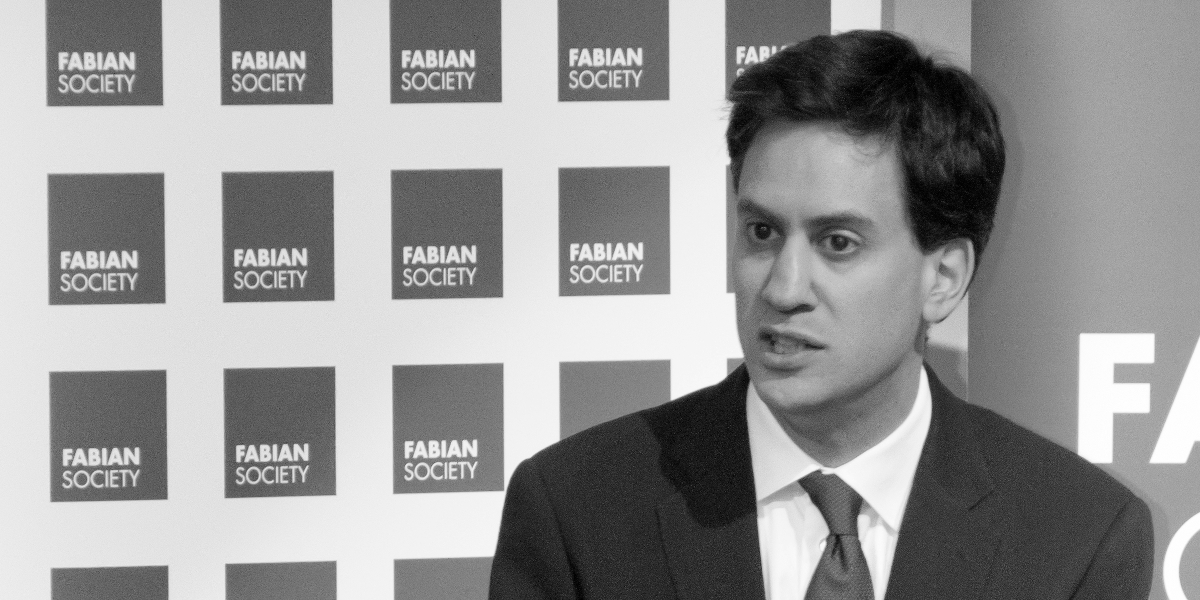Putting the public into public services
Peter Kellner has written of late on how policies themselves do not necessarily have to be popular. They have to be believed. They have to be credible. The example given by Kellner was that the 50p tax announcement by Ed...
Peter Kellner has written of late on how policies themselves do not necessarily have to be popular. They have to be believed. They have to be credible. The example given by Kellner was that the 50p tax announcement by Ed Balls was popular with the public but that deeper analysis showed people didn’t think it would make any difference.
How can Ed Miliband enjoy greater success with his intervention on public service reform?
Fabian Society research into public attitudes towards public service reform provides a few clues. Firstly the phrase. Public Service Reform. What does it mean? When the Fabian Society asked a nationally representative survey sample this question, the results were damning:
The public have very little faith in politicians that talk about public service reform. This is because they do not believe that government can really do much to improve services. Previous attempts have, in the eyes of the public, simply led to vast amounts of time and money spent on reorganisations.
This is the backdrop of public opinion to the Ed Miliband Hugo Young speech. It is also reflects one of the central tasks of Miliband’s programme for government. As Stefan Stern usefully reminds us Miliband has been consistent in his analysis of what New Labour did wrong and his desire to set his party on a different course.
New Labour became too distant from the people it sought to represent in government. It placed little faith in the power of public service staff to work with services users to improve services. It placed even less in the abilities of local authorities to run services or make decisions.
The Hugo Young speech is being trailed as a radical pledge to place power in the hands of communities. But to give communities power, Whitehall will have to lose some of it. This will be a difficult thing to achieve for many reasons but two seem particularly significant.
Firstly the civil service will be wary from five years of coalition chaos. The appetite for more radical reforms will be low. A demoralised civil service can see that reforms are very hard to implement. The Ed Miliband team will do well to focus on the Institute for Government’s work on transition from opposition to government in attempting to maximise departmental support for its programme. Secondly where precisely will the money for communities (presumably administered through local government) come from? Labour has already made commitments to match Osborne’s initial spending plans and has recently pledged to run a current budget surplus in its first term. This is a fairly tight fiscal straitjacket.
There is a further challenge for Ed Miliband’s plans on public service reform. The radical devolution of power is popular in some respects but that is far from the whole story. Fabian Society research on how people want their public services to change uncovered a hierarchy of preferred options for improving services. As detailed in the table below only four (out of an option of eight – see the report itself for more detail) scored a positive net approval rating.
User voice was clearly the most popular way to improve public services. Thankfully for Miliband this goes with the grain of his proposals for parents to be given power to hold failing schools to account. But the second most popular method for improving services was government ministers requiring national standards.
The public want more power and more say over how their services run but they also want to feel that the government in Whitehall is overseeing a minimum set of standards below which services should not fall.
It is increased power but with the promise of support and stability from Whitehall that the public want.
The Hugo Young speech will be followed by one on Wednesday evening by Jon Cruddas. Cruddas will talk at the New Local Government Network (NLGN) and it will be an important speech one to watch. Cruddas will illustrate how the policy review that he has overseen will result in the transformative politics that Ed Miliband promised when he became leader in 2010. Cruddas will argue that the mission of One Nation Labour will be to redefine what New Labour set out only to renew.
Ed Miliband is showing that his vision has consistency. He certainly cannot be accused of lacking in ambition. This in time will start to cut through. Closer to the election more voters will take a look at the man who might be prime minister. But as Peter Kellner has warned, it is not enough to be heard. A prime minister in waiting has to be believable and his programme for government credible.
That is the real test of the next 15 months. Tonight is an important staging post.

